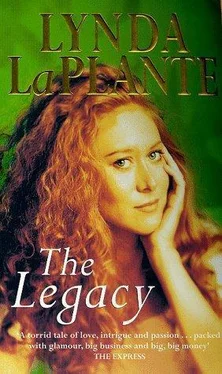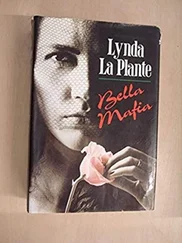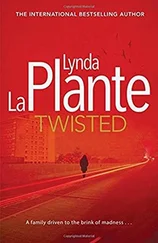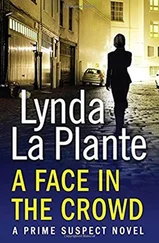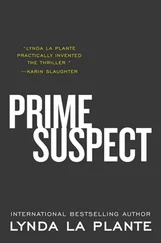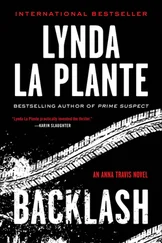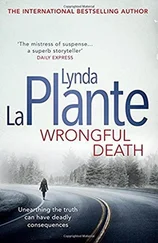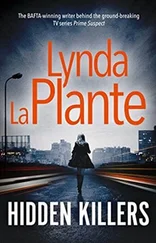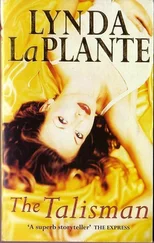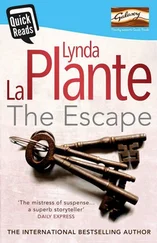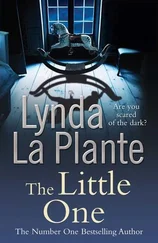Lynda La Plante - The Legacy
Здесь есть возможность читать онлайн «Lynda La Plante - The Legacy» весь текст электронной книги совершенно бесплатно (целиком полную версию без сокращений). В некоторых случаях можно слушать аудио, скачать через торрент в формате fb2 и присутствует краткое содержание. Жанр: Современная проза, на английском языке. Описание произведения, (предисловие) а так же отзывы посетителей доступны на портале библиотеки ЛибКат.
- Название:The Legacy
- Автор:
- Жанр:
- Год:неизвестен
- ISBN:нет данных
- Рейтинг книги:4.5 / 5. Голосов: 2
-
Избранное:Добавить в избранное
- Отзывы:
-
Ваша оценка:
- 100
- 1
- 2
- 3
- 4
- 5
The Legacy: краткое содержание, описание и аннотация
Предлагаем к чтению аннотацию, описание, краткое содержание или предисловие (зависит от того, что написал сам автор книги «The Legacy»). Если вы не нашли необходимую информацию о книге — напишите в комментариях, мы постараемся отыскать её.
The Legacy — читать онлайн бесплатно полную книгу (весь текст) целиком
Ниже представлен текст книги, разбитый по страницам. Система сохранения места последней прочитанной страницы, позволяет с удобством читать онлайн бесплатно книгу «The Legacy», без необходимости каждый раз заново искать на чём Вы остановились. Поставьте закладку, и сможете в любой момент перейти на страницу, на которой закончили чтение.
Интервал:
Закладка:
Doris knew them all, and as she passed they called and smiled. Mrs Griffiths, Lizzie-Ann’s mother, yelled to Doris, her raucous voice grating on Doris’ ears as she asked how her brood were coming along. Doris nodded to her, said that they were doing well, knowing Mrs Griffiths had already decided that they would leave the following term. Over the years Doris had tired of trying to make them understand how a few more years of education would benefit the boys. It had always proved pointless. They just followed their fathers into the mines as soon as they had enough education to sit the qualifying test, usually by the age of thirteen or fourteen. Some slipped in even younger.
The village women never tired of discussing Doris Evans, who even after thirty years was still an outsider,
and always referred to as ‘poor thing’. Some of the women, too young to remember, thought it was because she was widowed and without children, still living alone after all these years. Many whispered that, unlike everyone else in the village, Doris never took in lodgers although she had four rooms. Little Evelyne Jones had been right, oh so right, thought Doris. Memories fade fast. Heartbreak surrounded the village, every family was touched by it, so why should they remember hers?
The bakehouse smelt wonderful and Doris, who had left her tin of dough there in the morning, now collected her fresh bread. She paid her penny and carefully folded the linen over the bread tin. The short distance from the bakehouse to her front door could ruin the bread, covering it with coal dust so that it tasted gritty. She noticed that already her hands and coat had a fine film of dust on them. She blew her hands clean, then hurried on down the dark street.
Halfway down her street Doris met John Prosser, Tom Clapham, Rees Griffiths and Danny Tanner carrying Jack Carlick between them. Jack’s blackened face was screwed up with pain, and he moaned softly. Doris pressed herself against the wall. She had taught so many of these boys and so many of their names were listed on the church walls, for explosions and fires down the mine were an annual occurrence. When the men moved on, she found the back of her coat smudged with soot from the wall.
A group of small children, clutching their farthings, were clustered around Ernesco Melardi’s ice-cream cart. They should have been tucked up in bed, it was almost six, and Doris tut-tutted at them hanging around playing tic-tac. They saw her and waved, and Doris gave a sharp nod of her head. She could hear the children sniggering and whispering behind her but she didn’t turn back. ‘Droopy-Drawers Doris’ was their favourite name for her this week.
It was the sound of a child’s screeching voice that made Doris catch her breath. It was sweeping over her again, and she only just managed to open her front door before her head began to thud with one of the blinding headaches that beset her so often. Doris was back in Clydach Vale again, her head thudding, her ears filled with the sound of the rushing water. She clung to the edge of the polished kitchen table. Twelve years ago, and yet it was as if it were happening at that very moment…
Again she heard the children’s voices, the screaming hooter as the warning went out. The school had been flooded with water from an abandoned coal level. Doris had waded through the slime, searching, calling out the children’s names. Three tiny bodies had been found in the playground, and then little Ned Jones was found curled up like a baby in the corner. Further on the boy’s mother cradled her six-month-old baby girl in her arms, her pitiful body covered in mud. It had been so long ago, but Doris’ vision of the children never dimmed. She stumbled to the rocking chair by the fire, and closed her eyes. It usually began with the memory of the children, then Doris would hear again the sound of clogs clattering on the street, the high-pitched voices calling, ‘Mrs Evans! Mrs Evans!’ Doris rocked herself back and forth, the clogs came closer … oh, so much closer … The fists banged on her door. The smell of the brass polish made her nostrils flare, her eyes water, and the memories swept over her, like the tears that rolled down her face.
They had been married only days, their honeymoon just a weekend in Swansea, and then Walter had returned to the mines. They said he had been in good voice, they’d heard him singing as the cage came up, then he had collapsed and no one could revive him. The doctor said the work had drawn all the moisture from his body and because it was not replaced he had died of dehydration, just like five others that same year.
The rocking chair creaked, Doris sighed, and the pain in her head began to fade, her thin lips moved as she smiled to herself and sweet memories now eased the pain.
Doris’ father was an inspector for the Cardiff Railway Company, and often at weekends he would get tickets for his family to travel around and see the countryside. He was proud of his eldest daughter; Doris was going to Cardiff University to study English. She was artistic and shy and loved to do quick charcoal sketches as the train puffed and chuffed its way across the valley.
On one of her sketching trips she had met Walter and fallen in love. Her father did not approve of the friendship. He considered the illiterate miner to be far beneath his clever daughter. However, when her father fell ill, Doris had no option but to leave the university to take care of him. Her mother had died when she was a child and there was no one else.
Once Walter had travelled all the way to Cardiff to see her, but he had been refused entry to the house by her elder brother. He, like his father, felt Walter was not good enough for her. It was not until Doris’ father died that she was free to marry the patient miner. By this time her brother had qualified as a doctor and had met a well-connected girl. After a terrible argument, Doris had packed a bag and travelled to the village. She knew she would never be happy living with her brother and his snooty bride-to-be. She had wasted no time telling them, had even said that they had aspirations above their station. Doris chuckled, she could still hear herself…
‘Father only worked the railways, he was nothing special, my Walter’s good enough for me,’ and off she had marched with the small legacy her father had left her, determined to marry her man.
It was the legacy which had enabled Doris and Walter to set up straightaway in their own home, which was unheard of in the village. They did not need to live in Walter’s parents’ house as so many newly-weds had to. They chose carefully every bit of furniture, each piece of linen, discussed the crockery, the glasses. Walter’s family became hers.
She went to Swansea to choose her wedding dress. It was one of the finest the village had ever seen, cream lace-covered satin with lace cuffs and frills at the neck, the veil and train stretching a good six feet behind her. It was decorated with small seed pearls, and she had embroidered shoes to match. Walter had helped her choose the dress. The gossips had whispered that it was unlucky and it was.
Three days later Walter was dead, and Doris was alone in the immaculate house. The wedding dress lay spread out across the bed. She hated her father, blamed him for not letting them marry earlier, at least she would have had those few precious years with her beloved husband. Nor did she ever forgive her brother and his wife. Dr Collins, as he now was, never even sent a wreath. The letter had been short and written by his wife: ‘Perhaps it is for the best, he was never good enough for you and we could, I am sure, accommodate. you for a while until you find a place of your own here in Cardiff…’ Doris never replied. Dr Collins, for all his snobbishness, still lived in the old family house. Half of it had been left to Doris and she had every right to move back, but she didn’t.
Читать дальшеИнтервал:
Закладка:
Похожие книги на «The Legacy»
Представляем Вашему вниманию похожие книги на «The Legacy» списком для выбора. Мы отобрали схожую по названию и смыслу литературу в надежде предоставить читателям больше вариантов отыскать новые, интересные, ещё непрочитанные произведения.
Обсуждение, отзывы о книге «The Legacy» и просто собственные мнения читателей. Оставьте ваши комментарии, напишите, что Вы думаете о произведении, его смысле или главных героях. Укажите что конкретно понравилось, а что нет, и почему Вы так считаете.
